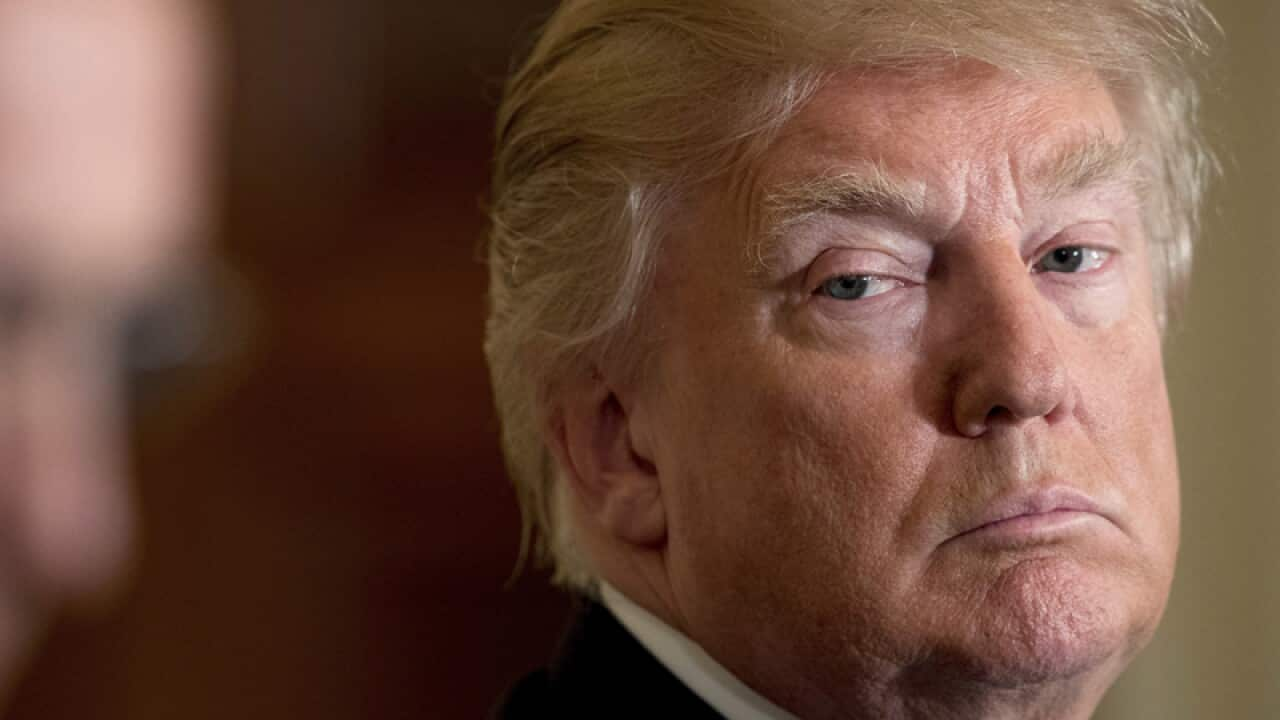The presidents of the United States and Russia have both presented souring views of the relationship between their two countries, exchanging sharp words as Moscow extended an icy welcome to the United States' top diplomat in a face-off over Syria.
In Washington, President Donald Trump said on Wednesday the United States' relationship with Moscow "may be at an all-time low."
Trump's comments follow the biggest foreign policy decision of his new presidency when he ordered 59 cruise missiles be fired into Syrian air base as payback for a deadly poison gas the US believed the Syrian regime carried out on April 4. Russia condemned the US action.
Hours earlier, Russian President Vladimir Putin was equally pessimistic, saying in an interview on Russian television: "The level of trust on a working level, especially on the military level, has not improved but has rather deteriorated."
The rhetoric came as US Secretary of State Rex Tillerson received an unusually hostile reception in Moscow, where any hope of better US-Russia relations were dashed by the American missile strike.
Tillerson met Putin in the Kremlin after talking to his Russian counterpart, Sergei Lavrov, for about three hours. The Kremlin had previously declined to confirm Putin would meet Tillerson, reflecting the renewed tensions.
Trump had frequently called during the 2016 US presidential election campaign for warmer ties with Putin, despite criticism from lawmakers in his own Republican Party.
But the civil war in Syria has driven a wedge between Moscow and Washington, upending what many in Russia hoped would be a transformation in relations.
As Tillerson sat down for talks with Lavrov on Wednesday, a volley of statements, including from a senior Russian official, appeared timed to maximise the awkwardness during the first visit to Moscow by a member of Trump's cabinet.
Lavrov doubled down on Russia's support for Syrian President Bashar al-Assad, repeating denials that Assad's government was to blame for the gas attack, instead saying it may have been faked by Assad's enemies.
Tillerson reiterated that Assad must eventually relinquish power in Syria.
"We discussed our view that Russia as their closest ally in the conflict perhaps has the best means of helping Assad recognise this reality," he said.
Lavrov said the missile strike was illegal and accused Washington of unpredictable behaviour.
But Lavrov said some progress has been made and that a working group would examine the state of US-Russia ties. He also said Putin had agreed to reactivate a US-Russian air safety agreement over Syria that Moscow suspended after the US missile strikes.
Tillerson noted the low level of trust between the two countries. "The world's two foremost nuclear powers cannot have this kind of relationship," he said.
Moscow's hostility to Trump administration figures is a sharp change from last year, when Putin hailed Trump as a strong figure and Russian state television was often full of effusive praise for him.
In another possible setback Trump backtracked on comments he made last year that NATO was obsolete but added that member nations must be their share to be part of it.
Trump flatly declared US relations with Russia were not good at the moment.
"Right now, we’re not getting along with Russia at all. We may be at an all-time low in terms of a relationship with Russia. This has built for a long period of time. But we’re going to see what happens," Trump told the news conference.
In an interview with The Wall Street Journal, Trump said his administration's policy was not to demand Assad step down as part of a "peaceful resolution to the conflict," in some contrast to Tillerson's remarks in Moscow.
The Wall Street Journal cited Trump as saying that Assad's use of chemical weapons again would elicit another military response, but he also said he would not intervene in depth in the conflict.
The US has accused Moscow of trying to cover up Assad's use of chemical weapons on April 4.
Russia blocked a Western effort at the UN Security Council on Wednesday to condemn the gas attack and push Assad to cooperate with international inquiries into the incident.









